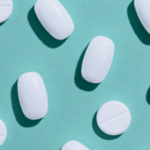Awareness of steroid use seems greater than ever before, even though it remains illegal and is stigmatised by the public and some health professionals.
Users, who rely on the Internet, suppliers and other users to get information, are presented with myths and inaccurate information that result in misconceptions.
Here are some of the most common myths about steroid abuse and what the evidence really says.
1. All steroids are the same
The substances used to build muscle and increase strength are called ‘steroids’ or ‘anabolic steroids’ by most people.
However, steroids are actually a group of hormones that the body needs to function, and they can include corticosteroids (which are a type of anti-inflammatory drug) and androgens (which are sex hormones).
Testosterone is the main androgen and is responsible for the physical changes that happen during male puberty, and it regulates sperm production, bone health, muscle mass and sex drive.
Manufactured versions of testosterone are one group of androgenic substances that are commonly abused to build muscle and increase strength. These substances are what are referred to as ‘steroids’ or ‘anabolic steroids’.
2. Steroids are safe
From severe acne to brain damage — steroid abuse comes with significant side effects and long-term health impacts.
They are not safe to abuse. Often people take other drugs or time their use (i.e. cycling and pyramiding) to counter the harms of steroid use, but there is no evidence that these methods work.
People who need to take steroids for medical reasons are closely monitored by their doctors because of the problems that can arise. Using steroids without medical supervision is dangerous.
3. Only a certain kind of person abuses steroids
We often used to associate steroid abuse with high-profile athletes and bodybuilders, but many different types of people do it.
They’re used by recreational athletes, gym goers and people who need muscle strength to do their job like bodyguards, security personnel, construction workers, police and members of the armed services.
Men and boys with muscle dysmorphia (a type of body dysmorphic disorder) see themselves as not muscular enough and can abuse steroids in a bid to fix this perceived flaw.
We don’t know exactly how many people abuse steroids, but it’s estimated that around one to five per cent of the population will do it in their lifetime and two per cent of Australian secondary school students report using them.
4. Steroids aren’t as illegal as other drugs
Although penalties for possession and supply differ from state to state, performance and image-enhancing drugs — including anabolic androgenic steroids, selective androgen receptor modulators and peptides — are illegal in Australia.
They are only legal when prescribed by a health practitioner to manage specific health conditions.
In some states, they’re classified in the same category as heroin and ice, so possessing or supplying steroids can result in significant jail time.
5. Steroids aren’t addictive
Some people who abuse steroids display all of the characteristics of addiction: a lack of control over use, social problems arising from use, risky use, and physical dependence.
People who rely on steroids for confidence and self-esteem or have body dysmorphic disorder are at high risk for addiction. Symptoms of addiction can be worse than withdrawal.
Withdrawing from steroids can cause headaches, tiredness, nausea, muscle pain, restlessness, poor sleep, low mood, low sex drive, body dysmorphia and suicidal thoughts.














